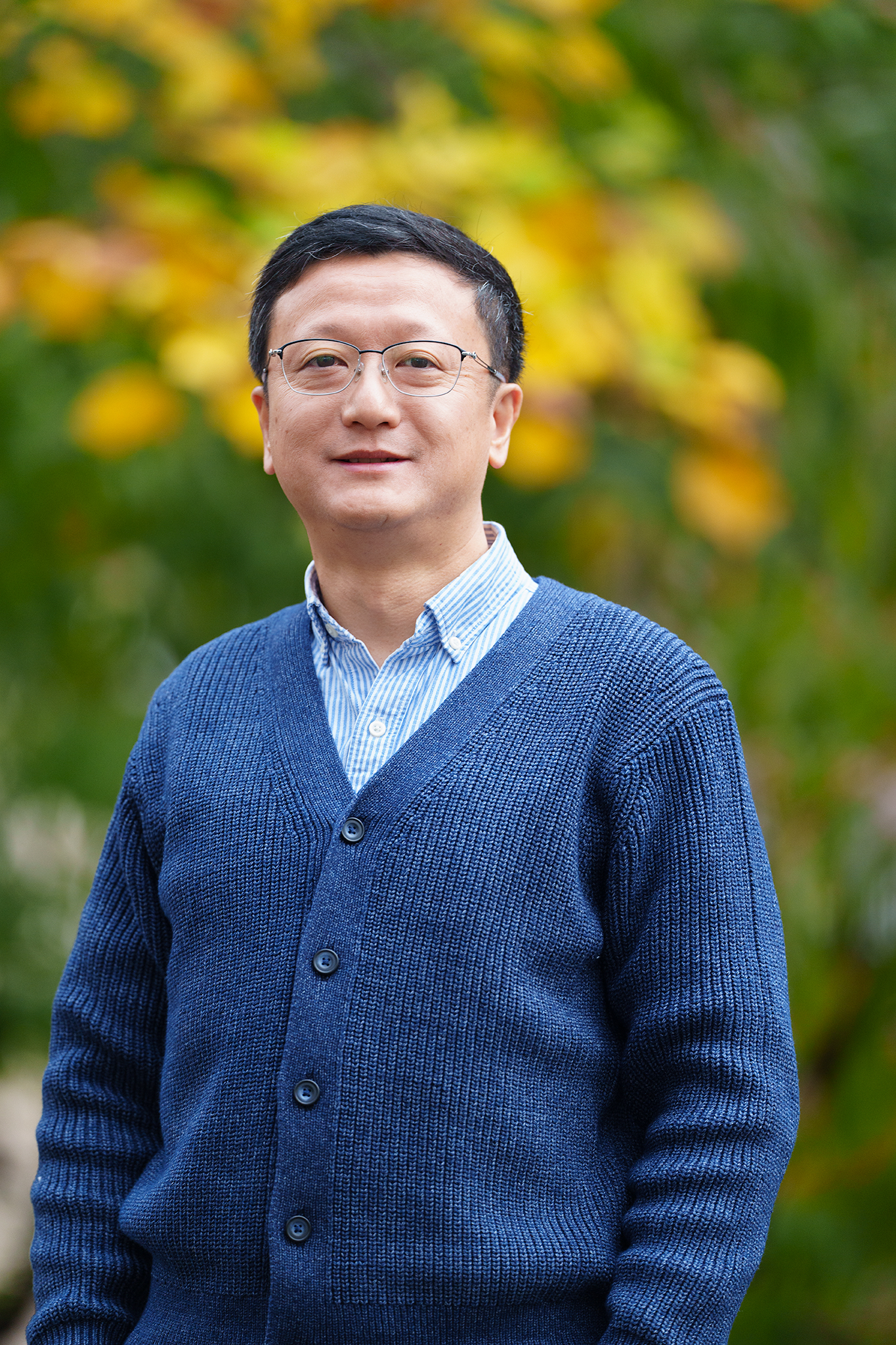Digital management solutions for farmers, the mysteries of how species interact and the use of One Health data to understand health traits are among the project activities of three newly announced Canada Research Chairs (CRC) at the University of Guelph.
This investment is part of more than $638 million in federal funding; $182 million will support 224 new and renewed CRCs. The announcement was made by Yasir Naqvi, Ottawa Centre MP and parliamentary secretary to the minister of health, on behalf of François-Philippe Champagne, minister of innovation, science and industry.
The announcement also included results from the Research Support Fund (RSF), which awarded U of G over $6.9 million. The RSF supports Canadian post-secondary institutions with funding to help manage research enterprises and maintain world-class research environments and to bolster Canada as a global leader in research and development.
“This significant investment from the federal government highlights our reputation for research excellence and the prominence of our research landscape,” says Dr. Shayan Sharif, interim vice-president, research and innovation. “This funding will allow researchers, including the University’s three new Canada Research Chairs, to carry out timely and impact-driven programs that will not only advance our current understanding, but also lay the foundation for future work in critical areas of interest.”
U of G’s three awardees are as follows:
- Dr. Asim Biswas, School of Environmental Sciences, Ontario Agricultural College (OAC), will hold a new Tier 1 Chair in Digital Agriculture. With this CRC, Biswas will also receive $150,000 in joint funding from the Canada Foundation for Innovation (CFI) John R. Evans Leaders Fund (JELF).
- Dr. Xin Zhou will hold a new Tier 1 Chair in Eukaryote Biodiversity Genomics. Zhou will join the University as a professor in the Department of Integrative Biology, College of Biological Science (CBS) in early 2025.
- Dr. Elif Acar, Department of Mathematics and Statistics, College of Engineering and Physical Sciences(CEPS) will hold a new Tier 2 Chair in One Health Approaches to Statistical Modelling.
Tier 1 Chairs, recognized as global leaders in their fields, receive $200,000 annually for seven years. Tier 2 Chairs, recognized as exceptional emerging leaders in their fields, receive $120,000 annually for five years. The CRC program helps Canadian post-secondary institutions attract and retain outstanding researchers in various fields, fostering institutional excellence in research and training.
Dr. Asim Biswas, CRC in Digital Agriculture

Biswas aims to develop smart farming solutions, including advanced digital tools and sensors, that will help farmers optimize resource use and reduce costs while lowering the environmental impact of their operations.
“This research program represents a crucial step forward in modernizing our agricultural practices,” says Biswas. “With the support of the CRC program, we will develop innovative solutions that help farmers make more informed decisions about their land management. Our goal is to increase productivity while reducing the environmental footprint of farming operations.”
Biswas says sensor-driven measurements are more affordable and less resource-intensive than traditional methods, and digital sensors can generate large datasets quickly and inexpensively. By taking a technology-driven approach, farmers can harness the power of data to make more precise decisions about crop management, soil health and resource utilization.
The program will leverage integrated soil sensing – using sensors to monitor soil conditions – and digital soil mapping – creating detailed maps of soil properties across a landscape – to determine variations in soil carbon, pH, moisture content, texture, nutrient levels and more across different geographic locations.
Characterizing soil variability allows farmers to manage production areas according to their unique needs. For example, determining how much water and fertilizer a crop field requires based on soil characteristics allows farmers to make informed decisions that minimize waste and maximize yield and harvest quality.
The program will also integrate other technologies, including artificial intelligence and machine learning, to create comprehensive farming management systems.
Dr. Xin Zhou, CRC in Eukaryote Biodiversity Genomics

Zhou will construct a model system to further understanding of how insects and plants interact, with a focus on pollination networks in the Subarctic region around Churchill, M.B. This work is a critical piece of a larger puzzle characterizing biodiversity and its role in ecological function in the Subarctic, which faces unprecedented threats posed by climate change and human activities.
“The secrets of life are embedded in the genomes, including what they are and how they have become adapted to a particular external stress,” says Zhou. “The CRC will allow us to apply state-of-the-art genomics technologies and supercomputing capacities to tackle questions related to the nature of biodiversity and predict how it may react to both natural and human impacts.”
Understanding how organisms interact with each other allows researchers to predict the impacts of changes in biodiversity before they occur. In turn, proactive strategies can be developed to protect and conserve elements of an ecosystem.
The research program has multiple objectives. Firstly, Zhou and colleagues will use advanced genomic technologies – tools used to analyze genomic information such as next generation sequencing – and bioinformatic analyses – computer tools that capture and interpret biological data – to characterize plant and insect communities and build a model of pollinator networks.
Researchers will then leverage this information to create a long-term monitoring platform for pollination networks and interactions in the Subarctic which can be used to monitor, understand and predict ecological change in this area.
Zhou’s findings will also create a foundation for future studies on interactions between different species and the long-term impacts of global change on biodiversity in northern ecosystems.
Dr. Elif Acar, CRC in One Health Approaches to Statistical Modelling

Acar and her team will develop statistical modelling strategies and computer software tools to analyze and integrate data across a wide range of One Health applications.
One Health recognizes human, animal and environmental health as interconnected systems. Analysis in this field requires flexible and powerful tools that can combine large amounts of complex data and decipher relationships between many factors and variables. For instance, Acar says, hospitalization rates due to respiratory diseases can be linked to environmental pollutant exposure, a variable influenced by multiple factors including climate, vegetation and demographics.
The tools and strategies developed through Acar’s research program will shine a holistic light on interactions between genes, microorganisms and environmental and ecological factors, revealing how these interactions might influence key biological and health-related traits in both humans and animals including respiratory function, immune response, disease susceptibility, microbiome composition and metabolic health.
Research synthesis – the ability to combine and analyze findings from multiple studies to gather overarching insights – and replicability – the ability to obtain consistent results through repeated experiments – are important considerations in Acar’s research.
“By applying statistical concepts and principles, we aim to enhance methods for integrating and translating research findings across different species and various health aspects,” says Acar. “I am delighted to join the University of Guelph and be recognized as a Canada Research Chair.”
The CRC will enable Acar to advance the role of statistical science in One Health while creating an outstanding training platform for the next generation of statistical scientists and One Health researchers.
